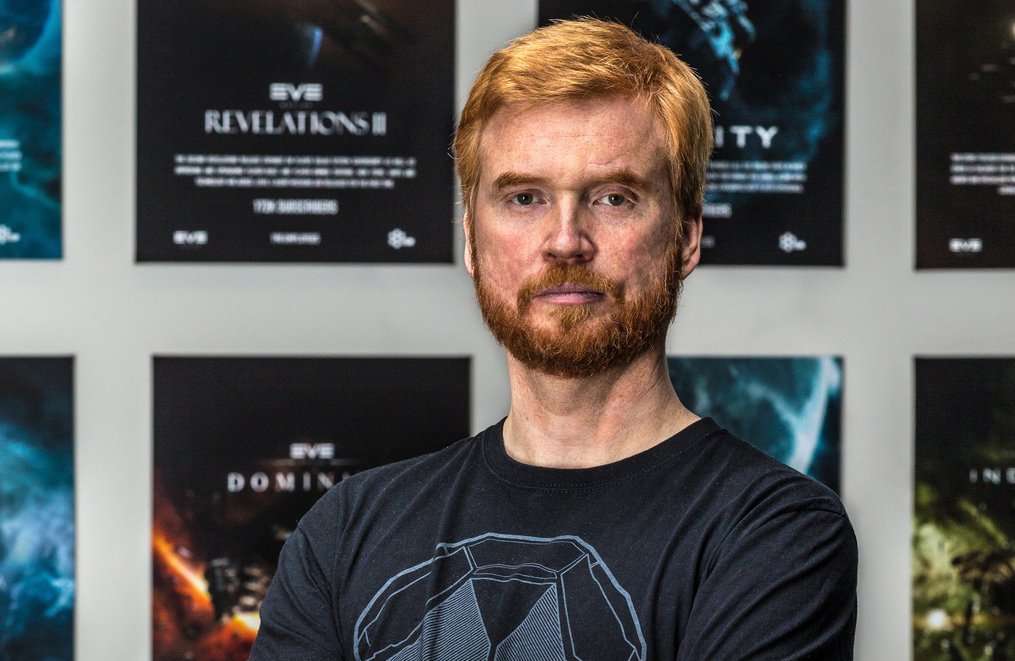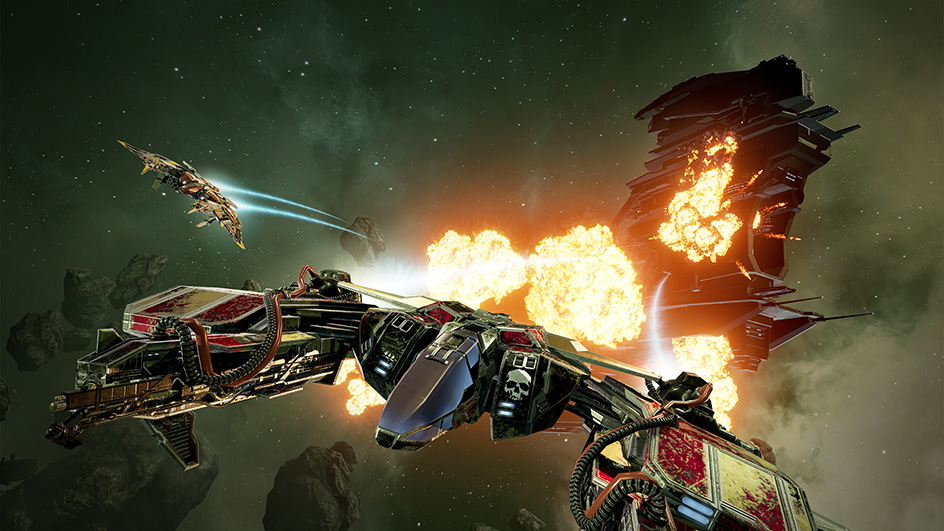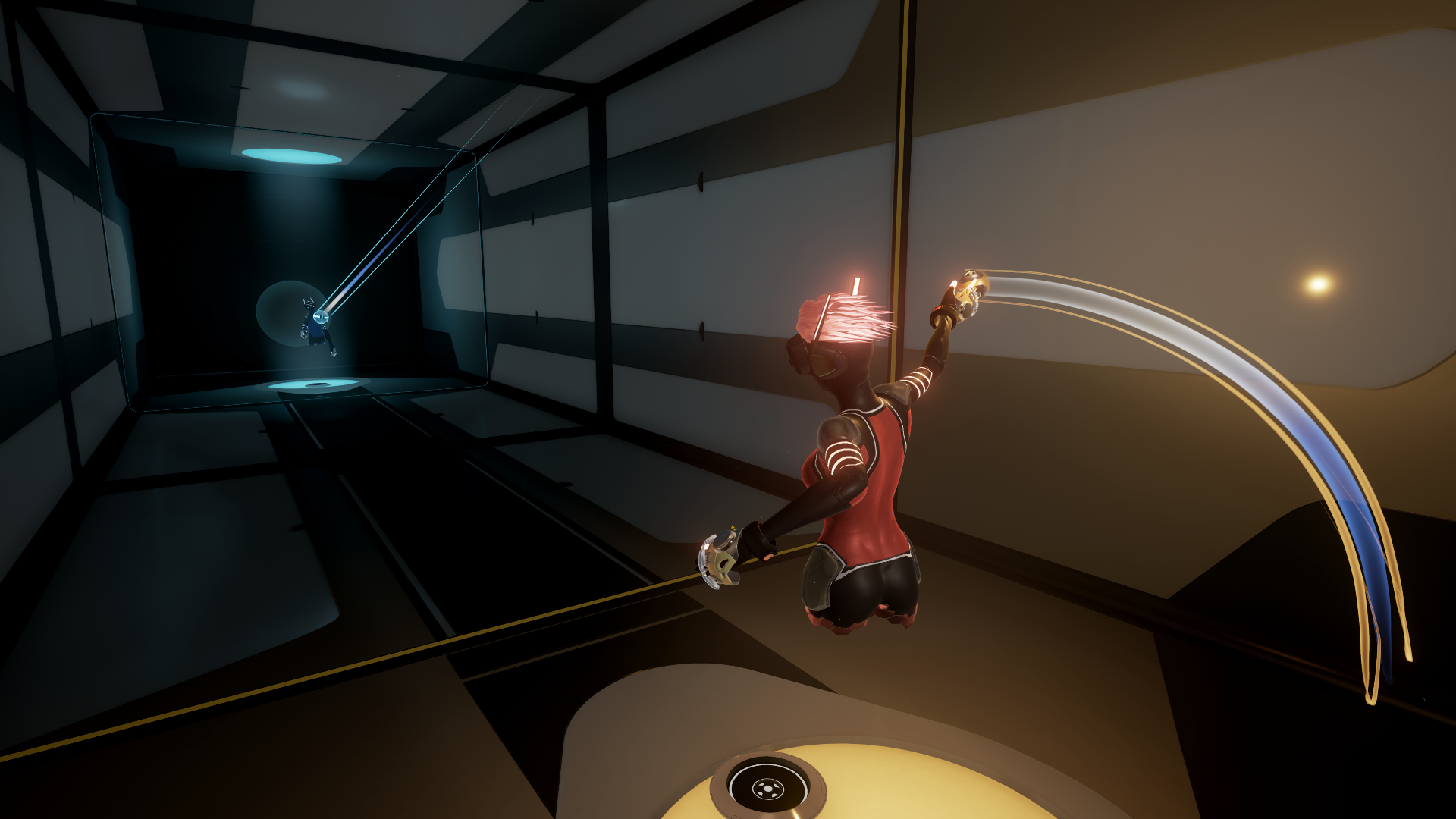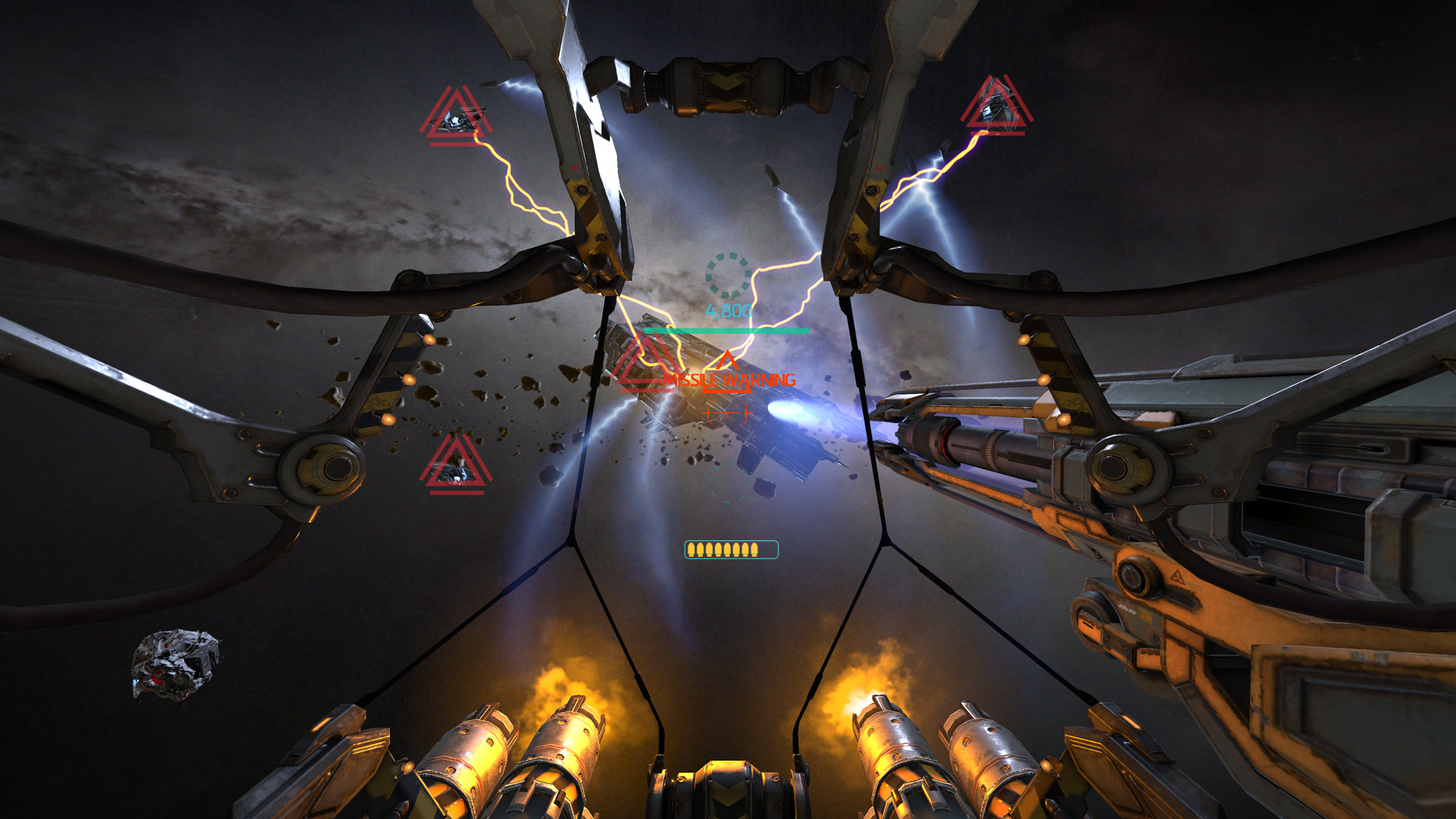CCP Games CEO says he's a 'big believer' in VR despite halting VR development
Why CCP is no longer making VR games like EVE: Valkyrie.

When CCP Games announced last year that it was laying off nearly 100 employees and shuttering its VR development, it was hard to not take it has an ill omen for the industry as a whole. CCP was one of the biggest VR-focused developers, launching four games across nearly as many years, and its CEO Hilmar Veigar Pétursson was one of many who spoke zealously about the platform's potential. But its sudden exit from VR development felt like a confirmation of the growing unease that VR was, in fact, not the next big thing in games.
During Fanfest 2018, CCP's massive fan-convention in its hometown of Reykjavik, Iceland, Pétursson took the stage to talk about the current state of CCP. Inevitably, that brought him to the elephant in the room of CCP's four available VR games, which Pétursson assured would see support for the time being. After the ceremony, I caught up with Pétursson to talk about the other elephant in the room: Was VR, in its current state, dying?
It's extremely risky right now to do any game of size and scale.
Hilmar Veigar Pétursson
"I'm a big believer in the future of VR still, nothing really changes that," Pétursson told me. "It's just going to take a longer time to get off the ground in terms of install base. We were always estimating the journey to be quite slow, but it's just going to take longer than makes sense for us to continue for now."

That remains the sole reason that, despite CCP Games' enthusiasm, it layed off 100 employees and shuttered two studios. VR has potential, but not enough people care. "The install base is not at a level that a company our size, and the type of games that we want to make, can be done based solely on consumer revenue. It can be done, but you have to be a [top-selling] game every time. It's extremely risky right now to do any game of size and scale."
Despite VR headsets still moving at a decent clip (a relatively recent report says they finally topped 1 million units shipped for Q3 2017), Pétursson says the tiny install base leaves no room for games that aren't anything but absolute smash hits. Of course, that's not a problem unique to VR—videogames development as a whole has always been a risky enterprise. But VR's niche appeal exacerbates those pressures.
Pétursson said that it's not hopeless, though. With few big-budget developers still developing for VR, the gap has been filled by a number of indie developers working on much smaller games. "Where you can have success that makes sense is at the indie level. A small team can definitely have a break in VR. But we're just not an indie [company], I mean, we're an independent company, but we have hundreds of people."

It was because of that considerable size that CCP Games cut loose its VR-focused studios so as not to risk the heart of the company, EVE Online, according to Pétursson. The sandbox MMO introduced a free-to-play option in 2016 that helped EVE break through a "plateau" with its players, opening up new opportunities to grow the almost 15-year-old MMO. At the same time, CCP is also "dipping its toes" into the mobile games water with EVE: War of Ascension, a spin-off that is currently in beta on Android. Likewise, CCP Games has also announced that the FPS Project Nova, another EVE Online spin-off, will be playable later in 2018. Unlike VR, these new investments are, as Pétursson said, "much closer to home."
The biggest gaming news, reviews and hardware deals
Keep up to date with the most important stories and the best deals, as picked by the PC Gamer team.
Going into VR is a bit like putting on scuba gear. It needs to be more like snorkling than scuba diving.
Hilmar Veigar Pétursson
With regards to CCP's four released VR games—Gunjack 1 and 2, EVE Valkyrie, and Sparc—Pétursson said fans don't need to worry about them disappearing any time soon. However, they also shouldn't expect any major updates for them. "They're continuing to sell quite well and people are continuing to play them. There's a small team of people at CCP who focus on these games. What we do going forward is going to be dictated a lot by the trends as we see them. That team is really just keeping tabs on how the sales trends are, how the platform growth is. It's a 'look and see' plan."

When I asked Pétursson why he thinks VR is continuing to struggle, he laughed. "It's a long list of things," he said. "It's a combination of price, ergonomics—which is a very broad topic, but the act of going into VR is a bit like putting on scuba gear. It needs to be more like snorkling than scuba diving. There's a considerable ceremony of going in there, which creates a barrier. We also need more great games for people to play. When all of that gets to a place where it leads to more mass adoption [of VR], then we'll take another look."
While understandable, that final statement feels a bit ironic, because CCP has stopped creating the very 'great games' Pétursson says VR needs, creating something of a 'chicken and egg' situation: not enough VR players to make games for, not enough games to attract VR players. But that's not necessarily CCP Games' burden to bear. "We are, in a way, happy that we went into VR," Pétursson said. "You have to innovate and take risks, and it could have gone amazingly, but in this case it went the way it went and you have to make a call and be honest about where you are."
With over 7 years of experience with in-depth feature reporting, Steven's mission is to chronicle the fascinating ways that games intersect our lives. Whether it's colossal in-game wars in an MMO, or long-haul truckers who turn to games to protect them from the loneliness of the open road, Steven tries to unearth PC gaming's greatest untold stories. His love of PC gaming started extremely early. Without money to spend, he spent an entire day watching the progress bar on a 25mb download of the Heroes of Might and Magic 2 demo that he then played for at least a hundred hours. It was a good demo.


